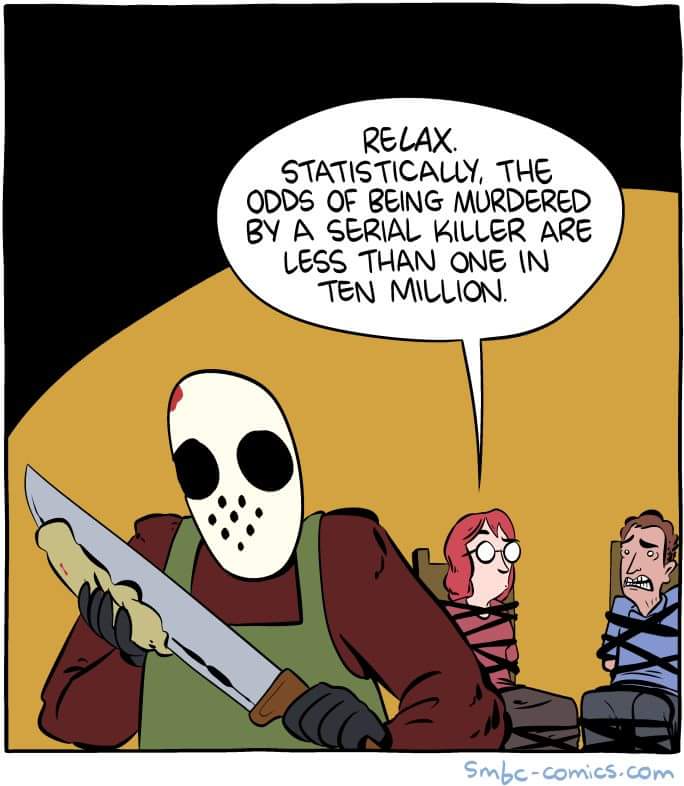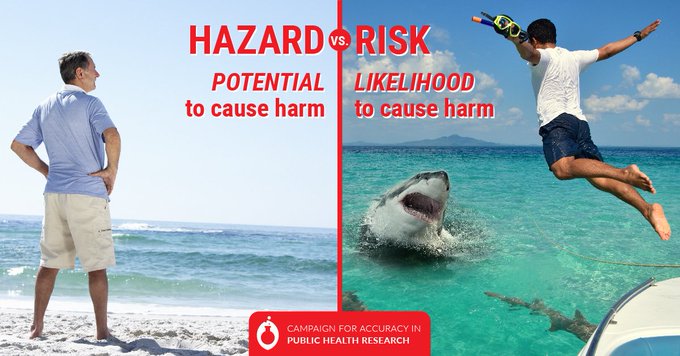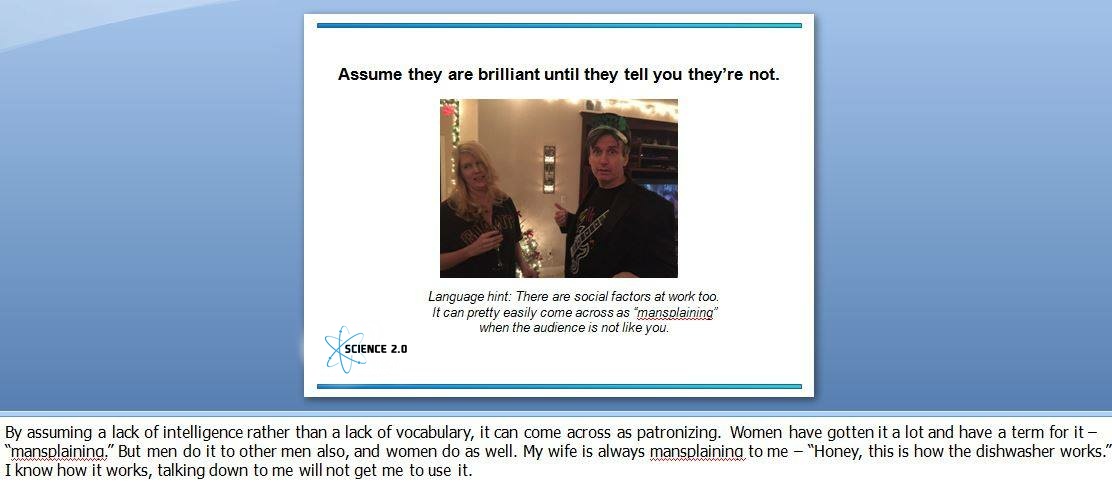Standing up to their political allies definitely turned the tide, even California Governor Gavin Newsom grudgingly conceded and signed a law banning the arbitrary vaccine exemptions for kids that had become common in places like San Francisco, where he'd been the mayor, and Los Angeles. Some schools there had vaccination rates under 30 percent.(1) Pretending the problem did not exist set California back, especially when coastal cities had more vaccine exemptions than the rest of the US combined, but scorn so long after it was common likely did not make much difference.
A new paper claims humor may have helped, and some emotion. Grabbing attention certainly works. Running a nonprofit like Science 2.0, one thing becomes clear; telling people that science is not killing them is a terrible business model. The big money is with Environmental Working Group, which produces a 'dirty dozen' list of foods that have trace levels of pesticides but does not include the organic industry pesticides used by their clients. Or Greenpeace claiming nuclear energy is bad while their executives commute to work on jets. Or World Health Organisation, which spends more on junkets each year than they spend on AIDS, malaria, and tuberculosis - combined - insisting there was no pandemic because China told them COVID-19 was caused by American meat.
They all raise money using emotion rather than fact. The problem for science is that most scientists won't do that. Scientists want the data to speak for itself, and that is unilateral disarmament, which has worked as well in science communication as it did in every extinct civilization that said 'we should just talk to the people trying to kill us.'
So emotion won't happen for scientists, but humor, that is possible. Despite public perception, scientists are some of the funniest people around. The authors list hashtags like #overlyhonestmethods and there are also entire Twitter accounts like @justsaysinmice, which hilariously notes exaggerated claims that leave out it's only in mice - and have no human relevance. The authors also note that humor makes a source more likable, which can help if you are an academic doing outreach - because outreach is not how you get paid. As I noted already, humor and telling people their food is safe is a terrible call to action. You need emotion and to scare people if you want to raise big money.
Some groups already knew about the humor part. There is no point in a chemist getting angry at people who are afraid of even the word "chemical", because environmental groups raise and spend $2 billion a year funding scare campaigns about chemicals. Instead, it is better to show how silly some of the claims are. A drop of a chemical in 160 Olympic-sized swimming pools is so minute even homeopaths would have to wonder if it did anything, but "endocrine disruption" activists had successfully replaced 'the dose makes the poison' with 'the presence of a molecule of a chemical makes it poison.' In a community where science literacy is near zero, like organic food shoppers, anti-vax zealots, and wind energy believers, it is pointless to pull out science slides. The debate is not about science.

A humorous way to explain the difference between absolute and relative risk. While their absolute risk is still the same, their actual relative risk is much higher. Anti-science activists use the inverse of this when manufacturing "endocrine disruption" claims but leave out, for example, that a chemical like BPA has only 1/20,000th the estrogenic impact of actual estrogen. So if BPA is harmful, it is 20,000X more harmful just breathing if you are a woman - and if she takes birth control, according to the scaremongering of activists, she should have turned into a frog. Credit: Saturday Morning Breakfast Cereal by Zach Weinersmith.
The authors concede this, and lament a lack of science literacy(2), but that is tackling a problem that does not really exist. By that I mean, that if it exists everywhere, there is no point listing it as a factor in one culture. While it is true adult science literacy in the U.S. only hovers around 30 percent, it is also true that by having nearly 30 percent Americans lead the world in science literacy. Yes, there is a market for acupuncture and endangered animal powders here, but compared to Asia? Not even close. Europeans had to pass a law to allow companies to claim water alleviates thirst, that's how little science they know overall. They think burning wood pellets doesn't cause pollution but nuclear energy does.
So rather than try to suggest causation for why there is science denial, it is better to try and show why it is denial and not based on thinking, which every science denier thinks they do better than scientists. In almost every case, from fracking to formaldehyde to organic food, people who deny science lack a clear understanding of absolute and relative risk.
In talks for science writers, one of my three rules(3) is "don't engage in deficit thinking", which is to say do not assume people do not know things and you just need to show them some slides full of data. Most science denial is instead a values issue, not based on data.
Yet sometimes people truly just do not know any better. If I tell you Chemical X can kill rats, and you think rats must be just like little people or else scientists would not study rats, you might worry. But rats are not little people. Cancer has been cured by 10,000 different medications in rats. Trillions have been killed by chemicals. It's the same with epidemiology and "linked to" claims that "suggest" a food will help you live longer or shorter. Those types of studies are only considered exploratory, not the same as a real scientific finding for humans.
Instead, it is better to show how absolute and relative risk are not the same. Just because trial lawyer consultants and environmental group participants get into International Agency for Research on Cancer or the National Institute of Environmental Health Sciences and claim that they can find a statistical correlation between a food or a chemical and disease does not make it science, it only makes it statistics.
Those groups ignore "dose" because they only care about finding something to declare hazardous. IARC was exposed for using papers with 5 orders of magnitude to claim something is a hazard, but then talking about risk in their media kits. If it takes 10,000 doses of something to create a hazard and the public actually get 1 dose per week, there is no risk.
To put it another way, if I tell you that there will be 20 shark attacks this year so you need to send this non-profit money or you are at risk of dying from a shark attack, and you live in Ohio, you are going to think I am a little crazy. That is what the mainstream science community thinks about risk claims for chemicals that you can't even detect without a $35,000 piece of equipment.

The plain truth is, some people can never be reached. Politicians know this; 88 percent of voters are voting based on party so trying to change their minds is a waste of time. All you need to do is appeal to your half of that. Another 12 percent are undecided so you can try to appeal to them. But 70 percent of eligible voters don't vote, so people can complain all they want about how stupid Trump or Biden supporters are, the time would be best spent getting people unlikely to vote to fill out a ballot.
And that is the case in science. Being funny won't help change the minds of people who believe Andy Wakefield on vaccines causing autism or Fred vom Saal on chemical homeopathy making you sterile, so there is no point trying to reach them.
The people to reach are instead those who buy Non-GMO Project because they don't know any better or assume BPA must be harmful or ConAgra wouldn't have taken it out of the lining of Manwich cans. Humor can help them understand how scientifically ridiculous some claims are.
NOTES:
(1) He didn't have much choice; if he didn't, he was standing in opposition to Democratic state Sen. Richard Pan, M.D. and the entire world of medicine while ridiculing Republicans about denying the science behind global warming. That 'teach the controversy' stuff works when you agree with your constituents - clearly he did not believe in masks or social distancing any more than he believes in vaccines, which is why his recall movement began - but does not play well in a diverse state.
(2) Yet they also claim that fewer science journalists and local newspapers might be part of the problem, so they may just be throwing in things they read somewhere. There are fewer science journalists because the public stopped trusting science journalism - during the Bush administration they became another arm of politics and the public saw through it. Demand plummeted and their role is now filled by nonprofits like Science 2.0, ProPublica, and Nautilus while Scientific American is preparing its statement on Georgia voting line protocol rather than writing any science. Local newspapers are gone because unions made the price to do business so high the cost versus value is nonexistent in a digital world. The notion that a local newspaper would be better able to explain climate change or vaccines is a little silly.
(3) Also in my talks is "assume a lack of vocabulary but not a lack of intelligence" and I try to use humor in my talks rather than being science preachy. CLICK IMAGE FOR LARGER SIZE.





Comments